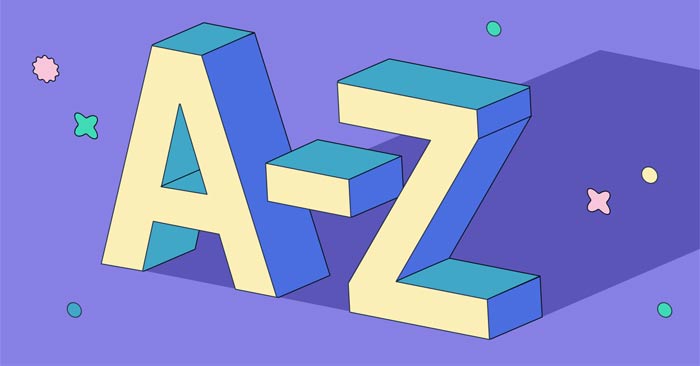The most complex word in English has only 3 letters.
Only 3 letters but 645 meanings. Do you know what the most complicated English word is? If not, this article will give you the answer.

Imagine you're a dictionary editor. For eight hours a day, five days a week, every week until the universe ends or humans stop speaking English, your job is to make sure that your trusted reference book keeps up with the ever-evolving definitions of the ever-expanding English language. And a three-letter word - the most complex and polysemous word in the English language - begins with " r ".

You might think it's absurd, but the editors of the Oxford English Dictionary recently revealed that " run " has actually become the single word with the most potential meanings in the English language , boasting no fewer than 645 different uses for its verb form alone. The extensive definitions of "run" featured in the upcoming third edition of the OED begin with the obvious, 'to go with quick steps on alternate feet', then run on for 75 columns of text. The entry, for all its bulk, took a professional lexicographer nine months of research to complete. Wonder how long it took them to identify the most annoying word in the English language. But how can three little letters be "responsible" for so many meanings?
That's the context. For example, when you have a fever, those three letters mean something very different than when you take a bath to treat a fever, or when your bathwater then overflows and drenches your cotton towel, forcing you to run to the store and buy a new one. There, you have to pay an $85 bill because in addition to a rug and some cold medicine, you need some thread to patch a tear in your sock & some tissues to wipe your nose, then buy a carton of milk because you've run out of your supply at home, and all of this causes fear to run through your soul because your club membership expires at the end of the month & you went over budget on last week's grocery shopping trip, when you ran over a nail in the parking lot & now your car won't even start properly… And you know that you're letting your inner monologue run through your head with countless thoughts, oh my god – I would do things differently if I ran the world. Maybe you should run for office. If you translate all of this into English, you'll probably use the word "run" a lot.
It's worth noting that " run " hasn't always been in the dictionary. When the first edition of the OED came out in 1928 (after 70 years of editorial work), the word with the most polysemy belonged to another three-letter word: "set." Even today, the printed version of the OED still contains about 200 meanings for "set," starting with "to place, lie, or stand (something) in a particular place or position" and continuing for about 32 pages.
So what happened? Why did 'run' suddenly become the most polysemous word in the English language? British author Simon Winchester suggests that it is "a feature of our more dynamic and frenetic times", making words like 'set' seem almost rigid and passive by comparison. 'Run' seems to have gained some momentum during the boom of the Industrial Revolution, when every form of mechanised innovation adopted it as their verb of choice. 'Running machines, running clocks, running computers—all these [meanings] date from the mid-19th century,' Winchester says.